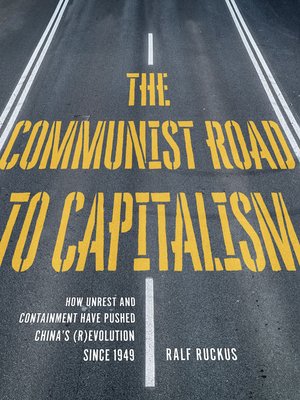The Communist Road to Capitalism
ebook ∣ How Social Unrest and Containment Have Pushed China's (R)evolution since 1949
By Ralf Ruckus

Sign up to save your library
With an OverDrive account, you can save your favorite libraries for at-a-glance information about availability. Find out more about OverDrive accounts.
Find this title in Libby, the library reading app by OverDrive.



Search for a digital library with this title
Title found at these libraries:
| Library Name | Distance |
|---|---|
| Loading... |
The Communist Road to Capitalism is an in-depth exploration of the central role that the Chinese Communist Party (CCP) played in China's transformation from socialism to capitalism. Many interpret this transition as the result of the 'betrayal' by reformers in the Party who wanted to establish capitalism. Ralf Ruckus reveals that the planned economy of socialist China not only created a class society under CCP rule that was based on exploitation, repression, gender division, and social exclusion but also led to class struggles against the new socialist ruling class like mobilizations of workers and students during the Hundred Flower Movement in the mid-1950s and the Cultural Revolution in the mid-1960s, culminating in the 1989 worker and student uprising in Tiananmen Square. In typical authoritarian fashion, the Party leadership reacted with repression and rigid policies that were meant to strengthen and consolidate power. The restructuring of the state sector, as well as foreign investments, industrialisation, migration, and urbanisation, fundamentally altered the economy, the gender regime, and the composition of the working class. Large-scale struggles of the 'old' socialist working class, and of the 'new' migrant working class in the new millennium forced the CCP regime to adapt its economic and political strategies for fear of more escalations of social struggles. By carefully tracing these developments, Ruckus provides us with an invaluable insight into how this would ultimately transform the CCP leadership itself, turning it into the core of the newly composed capitalist ruling class that is still in power today. While breaking with established orthodoxies that dominate stale discussions about China's rise as an economic power, The Communist Road to Capitalism is both a bold reinterpretation of the history of the People's Republic of China and a searing critique of centralised state power. This book appeals to those who wish to better understand the dynamics and power of social struggles and the measures taken by governments to contain them through repression and co-optation.







